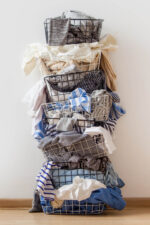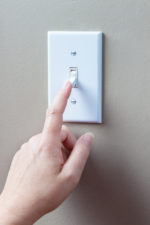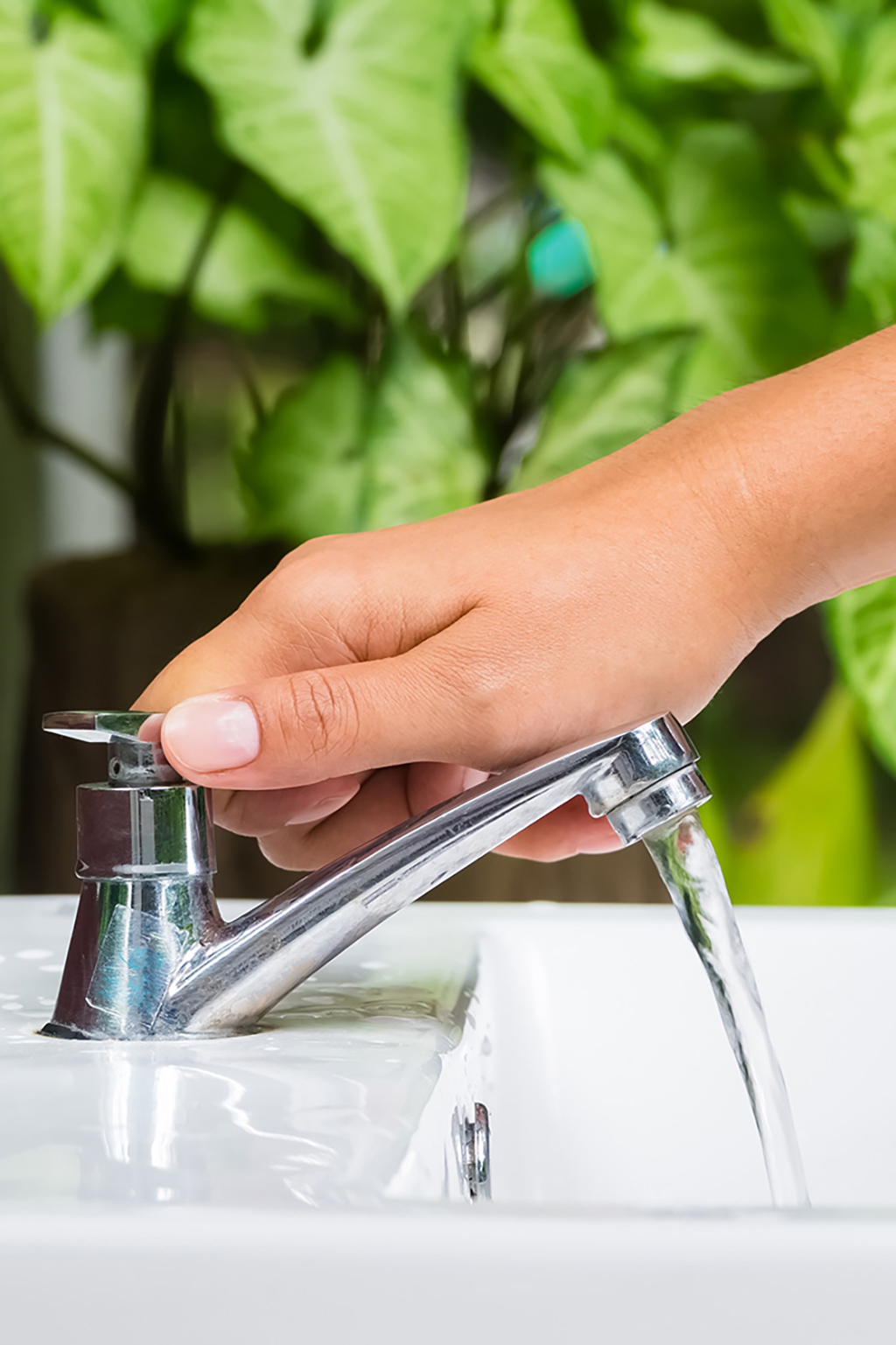7 Simple Water-Conservation Steps
One of the greatest comforts and conveniences a home can offer is its access to water. From taking long, hot showers to washing clothes and dishes, so much of everyday life as we know it is possible because of this precious resource.
However, we waste a tremendous amount of water each day, which can have a drastic impact on our wallets, our health, and the earth. Fortunately, we can all do our part to help remedy the situation by taking a few sensible actions to lower our usage.
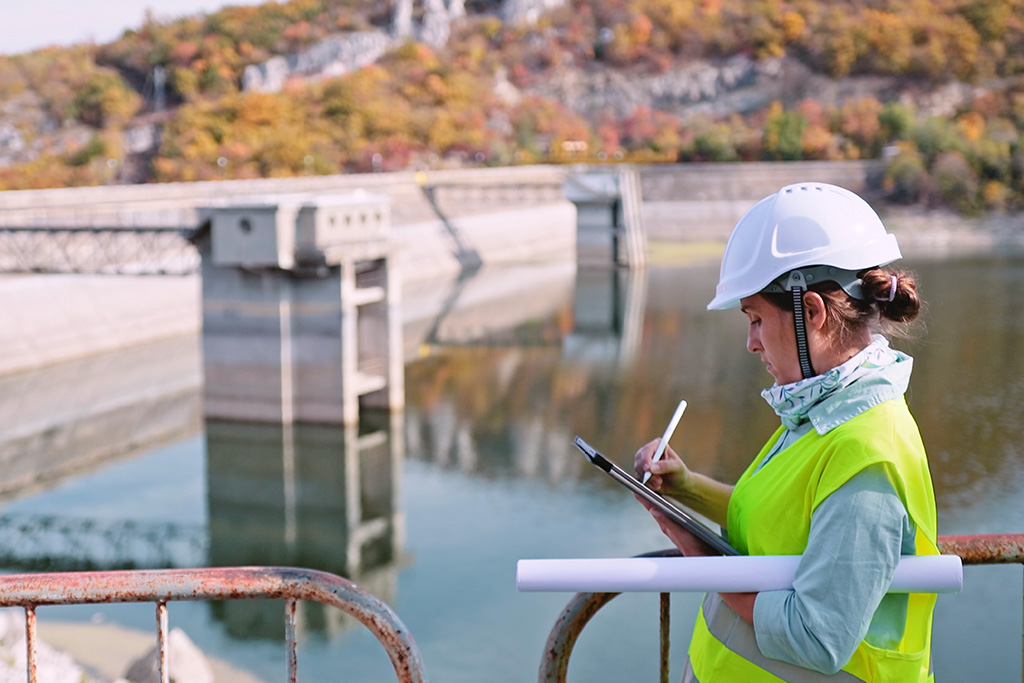
The numbers
To fully grasp the situation, consider these key statistics about overall water availability and American water usage.
- Only 3 percent of the earth’s water is fresh water—and less than 1 percent of it is accessible.
- Eighty percent of states reportedly experienced drought conditions in the summer of 2022.
- In the United States, daily water usage is more than 300 gallons per household—that’s about twenty-nine billion gallons of water used every day. Not surprisingly, much of that is bathroom focused: about two-thirds of our water goes toward toilets, showers, and faucets.
- Leaks alone waste about 180 gallons of water per week for a family, which equates to almost 10,000 gallons a year. According to the EPA, that’s 300 loads of laundry literally down the drain for every household. In total, that potentially wastes around nine hundred billion gallons of water each year.
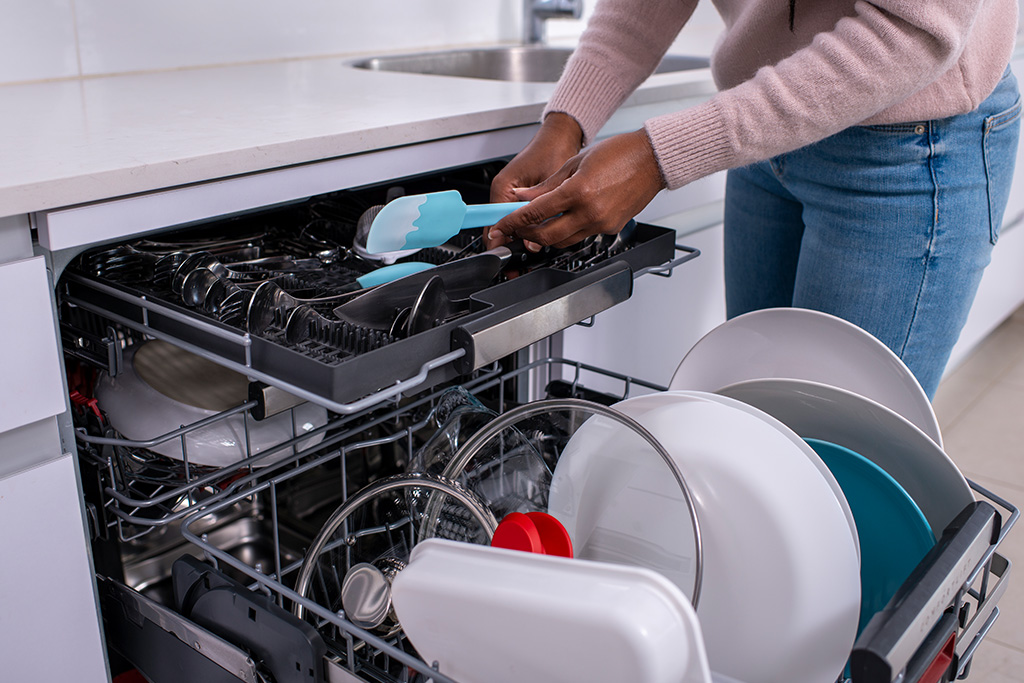
The solutions
Looking at the pertinent numbers about water, the situation may seem worrying (and it is). But it’s not without hope. Here are seven areas, both inside and outside your home, where you can make a meaningful impact.
1. Dishwasher
A frequent source of inefficiency, this appliance is too often run when it’s not completely full. You can save an entire load of dishes each week—and approximately 320 gallons of water per year—by filling it up each time. Another water-saving tip: scrape food off your dishes instead of rinsing it off.
2. Washing machine
To maximize your household’s other primary washing appliance, apply the same strategy: make sure to do only full loads. Also, use cold water whenever the materials being washed allow for it.
3. Shower
We all love getting clean, but how we do so matters. In fact, taking a bath can use up to twice as much water as showering. When you shower, keep it between five and ten minutes to help both your bottom line (by saving about ten gallons of water per five minutes) and your health (as your skin won’t get dehydrated).
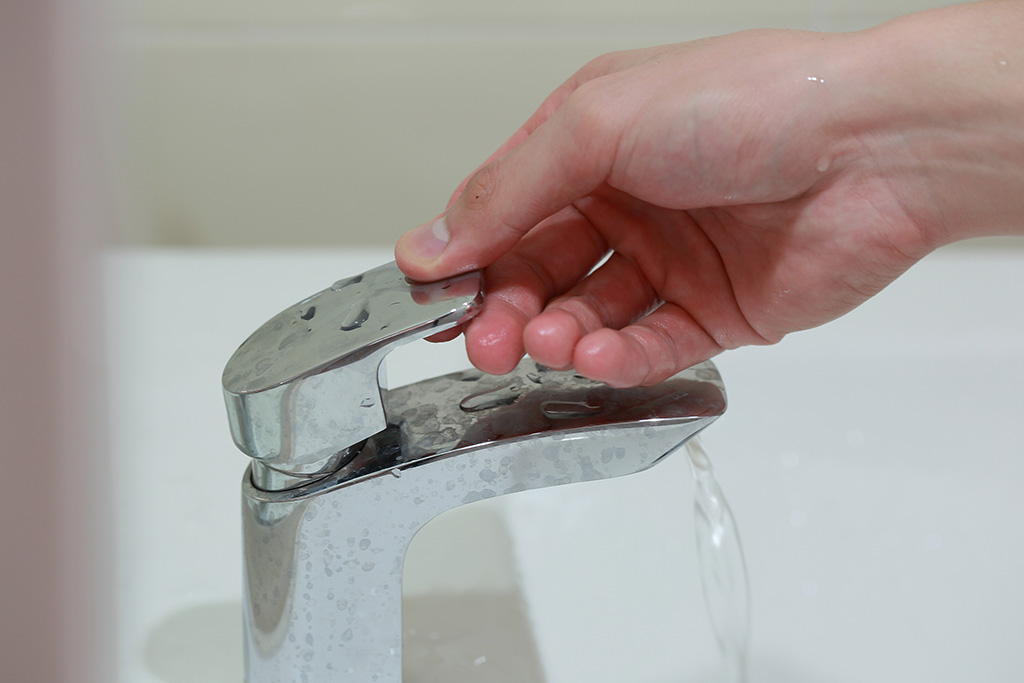
4. Personal care
There are several easy ways you can save water by adjusting your daily routine. For example, turning the water off while brushing your teeth and shaving can save up to 5,700 gallons of water annually.
5. Yard and garden
With the weather getting warmer and summer not too far away, it’s a good time to evaluate your outdoor water usage. Making smart decisions, such as watering your yard and garden in the morning and keeping your grass taller, can help you both conserve water and maximize your curb appeal. And if your municipality allows it, you could try collecting water runoff in a rain barrel, which is an efficient way to maintain your garden.
6. Leaks
As mentioned earlier, leaks account for about 10,000 gallons of wasted water per household each year. So regularly checking for dripping or running water in your toilets, showers, sinks, and hoses—and fixing any problems quickly—can make a big difference. You can use this drip calculator to determine the impact leaks may be having on your water bill.
7. WaterSense labels
Perhaps the easiest way to reduce your water usage is to utilize products, from toilets to sprinklers, with the EPA’s WaterSense label, which indicates that they meet the organization’s strict standards for water efficiency. For example, swapping out standard showerheads, faucets, and toilets for WaterSense versions can save you around $450 each year on your bills.
Clearly, water waste is a huge issue in the twenty-first century. But when you make simple, water-focused changes to your home and lifestyle, it can make a big difference to your wallet and the planet.



